|
press プレス |

|
Correspondences between Jeremy & Terre - Jeremy |
In Made Like A Tree (US), September 20 2009.
 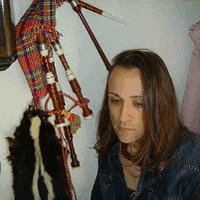 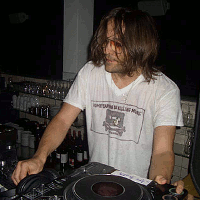 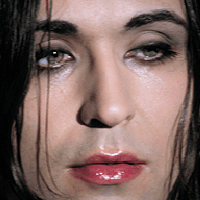 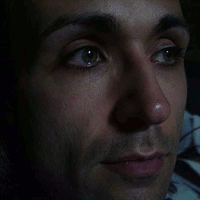 |
[Q!] I've read up on you through some of the interviews you conducted and you alluded to the fact that no one hired you while you lived here [USA]. And now for several reasons, despite all of your critical acclaim, it's a little peculiar to know that the same thing seems to be happening (you don't make it any easier on yourself though living in Tokyo [by being the antagonist that you are]).
I hate being an antagonist, actually. Totally emotionally draining, awkward and embarrassing. But somebody's go to do it. ;-)
[Q!] I must admit, I was slightly under the impression that you get giddy from kicking back against people and the status quo.
Yes, that's a common misunderstanding most people in critical media face. I attribute this to the fact that people (particularly Americans) are so duped into interpreting their lives through the language of self-determination or self-improvement that the notion of someone acting deliberately out of despair and desperation (rather than desire) is usually unconsidered. Ultimately, most people want to twist everything into a form of self-empowerment, which I do not believe in. People are generally terrified that they will cease to exist without "dreams" and "hopes" and "taking control"... but reality is chaos and lack of control - and we continue to exist. All that self-actualization stuff reflects religiosity of one form or another. I prefer to feel badly about things. It strikes me as safer.
[Q!] I am a little embarrassed to ask you for "content" like I have by collecting our correspondences (disrespectful?), but to me it's more about sharing a consciousness and to build community around that. It makes us all better people and significantly more meaningful artists if we calibrate ourselves around meaning and conviction.
Well, I think one of the complications of our correspondence, and perhaps why it has started in the first place, is this gap between your (apparently) totally sincere investment into concepts of sharing, consciousness, community, inspiration, etc.; and my insistence upon focusing on dislocations and miscommunications as the ways in which people interact. To this end, our "email connection" is in fact a cavalcade of misunderstandings and redirections, I would say. But we get more momentum out of this confusion than if we had both assumed the same language.
And if I am to be honest (per a statement you wrote about メus being better people and more meaningful artists if we calibrate ourselves around meaning and convictionモ mention), this kind of language is totally alienating to me. I mean no offense in saying that, just as I know you mean no offense by using those words to interpret the effects of my projects upon you. But I find that language linked to social processes which I consider oppressive - the oppression of humanist good will. Still, that language is integral to your (and most people) retrieving value from my projects... which I also have to calculate for, and somehow insert these doorways into the projects in order for them to be signed, distributed, sold, bought, etc... this is a requirement of all critical media, and also why the majority of it falls flat. In being manufactured or presented, it is immediately compromised beyond alternate (non-commodity) use values. I consider this problem insurmountable. But ミ reiterating my previous point about most people thinking critics get a kick out of being assholes - there are causes for action other than hope. I am not motivated by what I wish to bring about. I am compelled by that which I find unacceptable.
I am anti-humanist (I think the trendy phrase is post-humanist) in that the concept of the "human" (which serves as the basis for legislation of rights, etc. - defining who qualifies for protection within western societies) is simultaneously homogenizing and exclusionary. There is no place for diversity or disagreement. There is no place for "choice". Only legislating a concept of the "body" as it is born - ie, the "can't help it" rule of law. We've been trudging through the concepts of people being born as "women" or "non-white" deserving rights because, "Well, they can't help it." Now on TV and other media we are constantly told gays and lesbians can't help it. Transgenderism, too - it's just "gender identity disorder". In the end, humanism robs us of the personal and political capacity to choose to change society, to choose to accept people. The "can't help it" humanist outlook does bring about change quickly, but at the long-term price of no deep acceptance or understanding. In the end, a person like myself who considers my sexuality and gender to be socially-developed, with no "innate" convictions, remains a pervert to be ostracized by both dominant and queer communities. And so on and so forth...
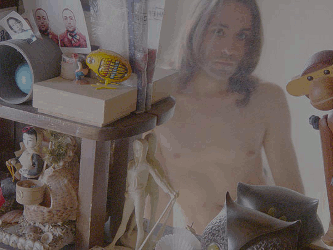 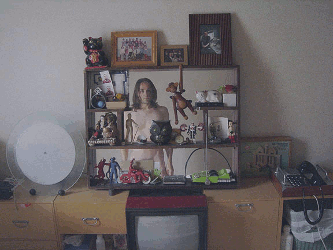 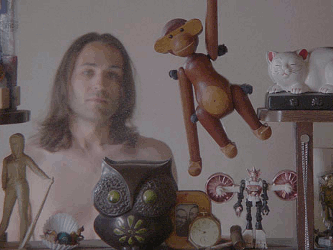 |
[Q!] Tell me how you made Midtown 120. I would be so pleasured to hear how you made (what I celebrate as) such a quality album.
Well, I guess audio-wise it's the album I intended, but the packaging is incomplete (should have a much longer text, but Mule had no budget for a longer CD booklet). "Reverse Rotation" was recorded first, about 6 months before I started the rest of the album. It was originally a remix I was asked to do of Kuniyuki's "Earth," but Mule didn't find it dancey enough, so it ended up as a 'collaboration' with Kuniyuki on my album.
Next was "Brenda's $20 Dilemma," followed by "Grand Central." "Grand Central" is actually intended as a single 20 minute track, but I inserted the track ID for easy cueing. I think "Sisters, I Don't Know What This World Is Coming To" was the most technical track, involving a lot of un-synched recordings from an old analog Yamaha synth (CS-10) I picked up at a pawn shop the week I made that track... maybe also one of the most emotional tracks of the album for me? The melancholy feels right? Not sure...
There is also a lot of MIDI acoustic guitar (those Eno-esque pad sounds in many of the tracks), which was a kind of experiment for me. I like acoustic guitar (folk music, etc.), but didn't want it to erode into a guitar solo... kinda tricky.
Hmm, not exactly a lullaby story, but...
I am a "studio person" who anally and slowly prepares "that one mix" for release, but I am not good at alternate takes or things like that. I guess I approach music like writing - trying to do it clearly once. Also, my career has been vocally against notions of "live" performance (I think DJ-ing is as live as I get). This is partly because I am not a "musician" - I don't play instruments, just fake it. Another reason is to critique rock culture and masturbatory gesticulation.
[Q!] The way you speak about Midtown 120 sounded pretty functional. Its not my place to pry into the emotional process of your work, but you didn't really sound like you even enjoyed it. Perhaps that's just the way you are choosing to describe how the album came together. Do you still have the text that you would have included in the album? Also, did you paint the cover and subsequent entries? Can I ask you who those are by, what/who they are of (you?) and why you chose them?
I'm not into emotion other than in relation to representational issues. My label Comatonse (pronounced coma-tones) itself was a reaction against the spiritualism of the ambient scene, and the fact that my main goal in spinning ambient sets was to put people to sleep. The more people I got to fall asleep in a club, the better the set. "Comatonse" it's a play on "comatose" as a form of "ultimate relaxation" to the point of violence - one that is not able to be romanticized or spiritualized. Relaxation as a material rather than spiritual state of being. Then I switched the ending to "tones" for music, swapped the order of the last "e" and "s" to give it that Italo flair... :) (Since my real name is so complicated to remember, I felt compelled to resist the urge to make my label name any easier - a kind of anti-marketing statement, or joke at least, since I had no idea the label would ever have more than a single release.)
There is no longer "Midtown" text - I only wrote to fill the space available. That's really my approach, to only produce mixes/images/text for actual distribution, so they are framed by the limitations of the media itself. Mule could afford 2 panels in a CD booklet, so that's all I wrote for. I don't write or produce from a romantic notion of free artistic expression, which I don't buy into. The cover paintings are by Laurence Rassel (whom I collaborated with before in "The Laurence Rassel Show" which you can download for free from my site). They are paintings she did of Hollywood stars, showing this grotesque way in which smiles can indicate joy or pain or aggression. I thought they worked well in relation to transgendered themes as well - a kind of drag image. And music as evocative of both pleasure and suffering.
I don't really enjoy producing music in the super-inspired "this is my life work" way. And I think it's important to show that you can still have a degree of sincerity without that ideology. For me, all that optimism and drive are unnecessary emotional drains, since society offers us so little mobility anyway. I don't like only deriving motivation from pleasure - for myself, that always means a denial or deferral of more complex and often unpleasurable conditions. The text hints at personal contents - as do things in the music (the titles, too...). And then there are things that are truly "personal" to me, and I think it is also important to show the divide between how we are encouraged to "read the personal into music" (images we develop about musicians' characters, etc.), versus my own subjective interests that are usually too encoded for others to read. For me, showing this gap is more intimate than pretending a CD represents me personally.
Shit, another long reply. sorry....
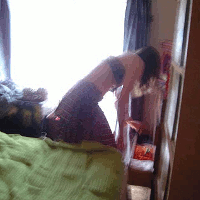 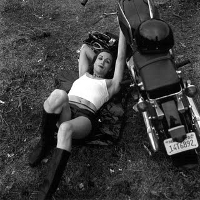 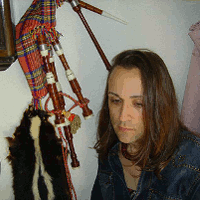 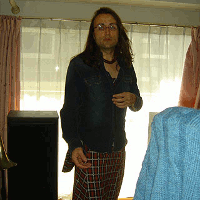 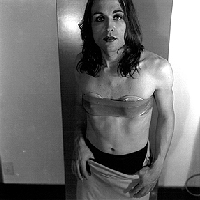 |